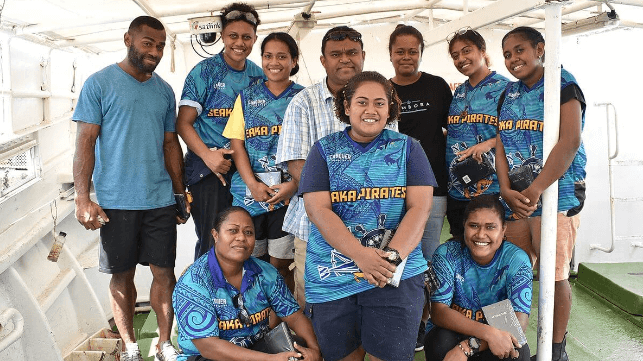First All-Female Deck Crew Starts Tuna Fishing Voyage in Fiji

Gender inequality is a longstanding concern in the maritime industry. Women are an increasingly large part of the maritime workforce on shore – particularly in professional roles – but they continue to face barriers to participation in seagoing careers, including discrimination and harassment. Internationally, female mariners make up less than two percent of the seagoing workforce – and much less in some nations.
In response, many public and private initiatives have sprung up to enhance female representation in the maritime industry. On Monday, Fiji took the limelight when a group of eight women set out to sea as the first full female deck crew aboard a tuna longliner, the Seaka II.
The initiative was made possible through a partnership between Fijian-owned fishing company SeaQuest Fiji and the Pacific Islands Forum Fisheries Agency (FFA). According to FFA, this first all-female deck crew voyage represents a step forward towards gender balance in the Pacific Tuna industry.
With some of the First Fijian women deck crew leaving Suva Harbour yesterday. ??????????????? pic.twitter.com/9hldDqSiLn
— Elena Vucukula (@ElenaVucukula) June 13, 2022
More than half the population of Fiji, one of the most developed South Pacific economies, live near coastal towns. They are highly reliant on coastal fisheries for subsistence, and the fisheries sector is a major source of employment for Fijian men and women.
However, Fiji is largely a patriarchal society based on existing cultural practices and traditions, and women have historically held few leadership positions in natural resource management. However, women lead two of the South Pacific’s major fisheries agencies. In 2018, Dr. Manu Tupou Roosen, a Tonga national, became the first woman to head FFA. In addition, Dr. Sangaa Clark from Kiribati leads The Parties to the Nauru Agreement (PNA). PNA controls the world’s largest tuna purse seine fishery in the South Pacific region.
“It is fitting that Fiji is setting a Pacific first. To see an all-female crew loading ice bait and stores, and to see a female first officer, a female engineer and a female bosun, marks real progress in our shared goal of increasing female employment in the tuna harvesting sector,” said Dr. Tupou-Roosen at the launch of the voyage in Walu Bay, Suva.
Fiji Maritime Academy (FMA) has also begun providing scholarship opportunities to women, putting them on track to become officers and skippers. “FFA is extremely privileged to have supported SeaQuest Fiji and the FMA in their efforts to train and commission this all-female crew, drawing on graduates from FMA,” added Dr. Roosen.
